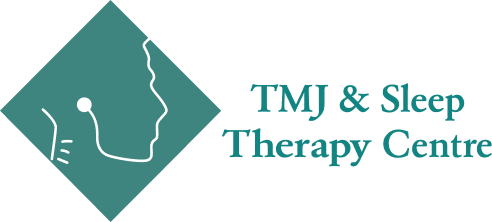Sleep plays such an important role in our lives. It’s recommended we spend 7-9 hours of our lives sleeping. That’s about 1/3 of our lifetime! But, when sleep is affected, every other aspect of your life can be negatively impacted. To truly live your best life, you have to prioritize quality sleep. However, some things just may be out of your control.
Think about it… we can control when we plan to go bed and plan to wake up. If you go to bed too late, then you probably should’ve turned off that next episode on Netflix that you just had to watch. Or if you get out of bed too late, then you probably shouldn’t have hit the snooze button in the first place. We can control how much light shines into our rooms with blackout curtains. If you have A/C and heat, you can control the temperature of your sleep environment. Uncomfortable mattresses and pillows can always be replaced for your personal comfort. But what about the things that can’t be controlled? This is where Sleep Disorders play a role. Read the myths below to find out more about what you can control and what you should seek treatment for.
- I have always snored, it’s normal – About 40% of men and 24% of women are habitual snorers, but those high percentages don’t normalize snoring. Did you know that snoring is actually the sound of suffocation? Sleeping on your back could make you more likely to snore because your airway is more likely to be obstructed from the relaxation of soft tissue in the back of your throat. Alcohol, depressants, and congestion from a cold, allergies or food could also cause you to snore. Snoring not only affects your sleep, but your bed partners sleep too. If you’re not sure if you snore, do you wake up with a dry mouth? Or sometimes a sore throat? Snoring is one of the many symptoms of sleep apnea. They are closely related, but not everyone who snores has a sleep disorder. It’s always important to have snoring checked out by a doctor to prevent other ailments such as heart disease, stroke, diabetes, and other health problems from compounding.
- Obstructive Sleep Apnea isn’t a big deal – This disorder can have long-term affects on your body if left untreated. OSA is caused when soft tissue in the back of your throat relaxes during sleep and blocks your airway. As airflow stops, the oxygen level in your blood drops, causing your brain to kick start the breathing process, which is often accompanied by gasps or choking. Sleep apnea causes your sleep cycle to reset multiple times during night, which not only affects how you feel when you wake up but can also lead to chronic condition and can even be fatal if the case is severe and left untreated. Some serious conditions could be heart disease, stroke, diabetes, depression, and more. If you have struggled with OSA your whole life, then you wouldn’t know what it feels like to wake up refreshed and ready for the day with a full night of quality sleep to get you through the day. Seek treatment to live your best life.
- Alcohol helps me sleep better – Alcohol is a sedative, but it isn’t a natural way to make you fall asleep. When we sleep, our body goes through sleep stages, REM and non-REM sleep, and each of these stages play their part in restoring the body to prepare for the next day. When drinking alcohol and going to bed, your brain immediately goes into a deep sleep and will stay there instead of cycling through the different sleep stages. Once the alcohol wears off, your body will spend more time than normal in lighter stages of sleep later in the night. This makes you more likely to toss and turn, wake up, and have vivid dreams. Overall, alcohol does not help your quality of sleep. If you drink alcohol, try avoiding drinking it close to bedtime. Also, stick to no more than one or two drinks to prevent alcohol from interrupting your sleep.
- My nose is fine, I only struggle with sleep – During data appointments, Dr. Klauer often discovers problems with the nasal passage that causes difficulty breathing through the nose. When you can’t breathe through your nose, that leaves you to breathe through your mouth. One example of a nasal obstruction is a deviated septum which is a sideways displacement of the wall between the tonsils. Some symptoms are difficulty with nasal breathing, nasal congestion, sinus infections, nosebleeds, sleep problems such as snoring and obstructive sleep apnea, and headaches. Patients often ask how they did not know they had a deviated septum? Well you have never been able to smell or breathe out of someone else’s nose, so, how would you? Deviated septums are actually present at birth but could also come about from a nasal injury. It is important to have a proper diagnosis to fix a deviated septum before leading to more health problems in the future.
- My child is too young to have Obstructive Sleep Apnea – OSA doesn’t have age boundaries. It’s actually common in childhood and could result to other complications if left untreated such as tooth grinding, delayed development, impaired intelligence, dysfunction of the nervous system, memory loss, depression, weight gain, and obesity. OSA can also result in behavioral issues such as decreased performance/learning problems in school, hyperactivity, aggressiveness, and social isolation/withdrawal. So how can you tell your child may have OSA? You should look for symptoms such as snoring, tooth grinding, mouth breathing, restlessness during sleep, sleeping in odd positions, periods of not breathing, night terrors, recurrent ear infections, night sweats, mood changes, poor concentration, bed wetting, headaches, and frequent infections. If your child is facing these symptoms, it’s important to schedule a consultation. When your child isn’t sleeping, it’s affecting your quality of sleep too.
- My diet can’t affect how I sleep – Actually, diet plays a pretty big role in sleep. Nowadays, we eat so many different things that are unnatural to the way we should be eating. Sleep apnea came about during the agricultural revolution and has affected the way we eat and sleep since then. A long time ago, our ancestors used to live off the land. They were hunters and gatherers who ate all fresh meat, fruits, and vegetables. They didn’t have the luxury of going to the grocery store to just buy processed foods. This “luxury” is coming full circle and is actually having negative effects on our health. Dr. Klauer often recommends treatment that involves an anti-inflammatory diet. It is encouraged to eat like our ancestors once did. When we eat inflammatory foods, inflammation in the tissues occurs and congestion in the nasal passage and obstruction in the upper airway can occur. An anti-inflammatory diet includes the elimination of gluten, dairy, and sugar from your diet. Organic foods are the best picks while grocery shopping. It is recommended to have a diet with a high focus on lean meats, vegetables, and fruits. Bonus: while the main focus is to improve the quality of sleep, patients often lose weight and see increased energy levels on the anti-inflammatory diet.
- I’m not overweight, so I can’t have Obstructive Sleep Apnea – Although obesity is a symptom of OSA, it does not mean it’s a requirement. No matter what your weight, size, and shape is, you may be at risk for OSA. Do the other symptoms align with you? Other symptoms of OSA include: insomnia, excessive daytime sleepiness, high blood pressure, labored breathing at night, puffing sounds at night, dry mouth upon awakening, snoring, jaw clenching, grinding, morning headaches, irritability, personality changes, depression, difficulty concentrating, sweating during sleep, heartburn, reduced libido, insomnia, urinating at nighttime, restless sleep, snorting, gasping, choking, confusion upon waking, erectile dysfunction, diabetes, or history of heart problems. If you struggle with any of these, it’s important to schedule a consultation sooner rather than later.
- Many doctors have tried to help, but I will always suffer from migraines – Migraines can often be related back to factors that can trigger them. Common triggers include stress, hormones, artificial sweeteners, alcohol, caffeine, sensory stimulation and weather. It’s important to find what triggers affect you the most and do your best to try to avoid them. Migraines and headaches can also relate back to OSA. When we aren’t breathing, oxygen is not flowing to our brains as it should. Every time a sleeping person stops breathing for more than 10 seconds, the blood oxygen levels in the brain are negatively impacted. We have had patients who suffered from daily migraines find full relief once going through treatment with us.
- I don’t have Obstructive Sleep Apnea so I can’t have a sleep disorder – Many other sleep disorders are out there. Dr. Klauer focuses on Sleep Breathing Disorders such as obstructive sleep apnea, Central Sleep Apnea, and snoring. There are other sleep disorders including insomnia, central disorders of hypersomnolence, circadian rhythm sleep-wake disorders, parasomnias, and sleep-related movement disorders. Dr. Klauer has developed strong relationships with other medical professionals that specialize in these sleep disorders in the area. If he concludes that you may have a sleep disorder not related to breathing, he will refer you to a specialist that will be able to treat your condition.





